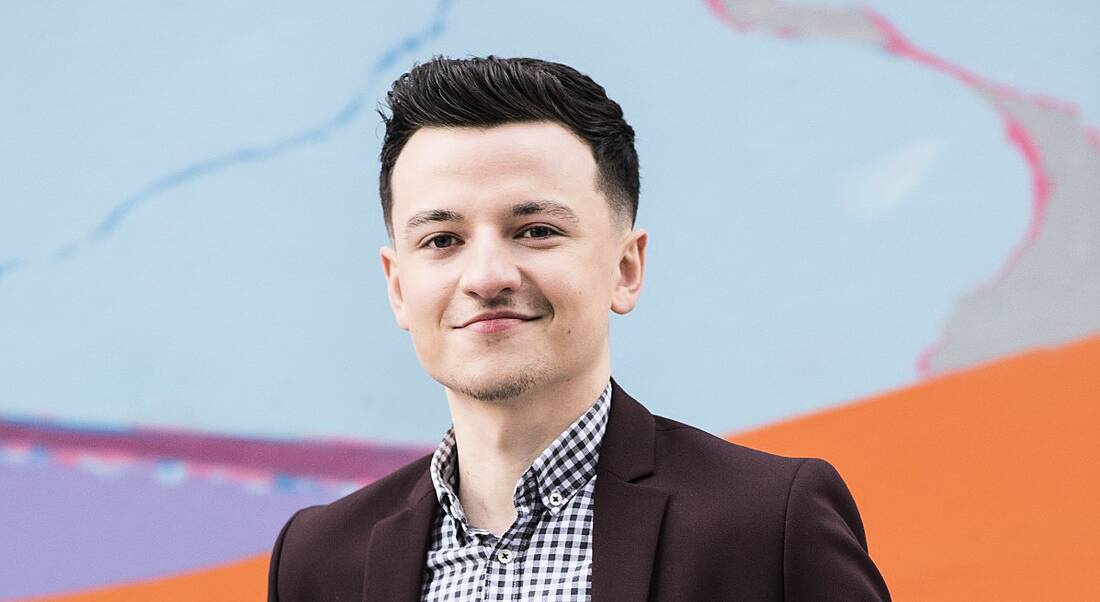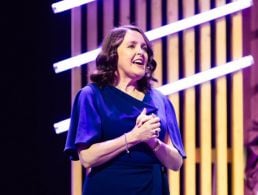Jumping in at the deep end is made possible with the support of colleagues around the world, says Accenture technology consulting analyst Steve Barry.
University College Cork graduate Steve Barry had an inkling that technology consulting was the right career path for him and he cut his teeth with an internship at Accenture before his final year at college. Won over by the company’s commitment to a welcoming and inclusive culture, Barry returned to Accenture to join its graduate programme in 2016.
As well as learning the ropes of his desired role, Barry found a new appreciation for networking and the benefits of working with a global experienced team.
What did you study in college?
I studied business information systems at University College Cork from 2012 to 2016, which is a mix of business strategy and trends content, combined with more technical modules including application development.
With this graduate programme, are you now working in your desired industry?
I was fortunate to have gotten the chance to test the waters by participating in the Accenture summer internship the year before I joined the grad programme. I had a good sense of the organisation and felt technology consulting was the right path for me. And it was. I really enjoy getting to work on highly technical projects, while building strong relationships with clients to apply a consulting edge to my day-to-day.
What drew you to this company when you were seeking work as a graduate?
My attraction to Accenture was twofold. Firstly, as I mentioned, technology consulting is an interest of mine as it gives my daily work both a technical and business-oriented edge. I got my first taste of this when I worked with Accenture for five months as an intern in 2015 before I returned to my final year of university.
The second thing that attracted me to the company is its passion and unwavering commitment to ensuring that Accenture, as a company and as a workplace, is inclusive and diverse. Their dedication to this and the opportunities they provide to their employees to continue to push this forward is what enticed me to return to the company after graduating.
What expectations did you have before you began the programme?
I think my expectations were tempered by my previous experience, but the main thing I anticipated was a challenge. I very much enjoy working here. The work we do is not easy, nor is it meant to be, and it is the people around us that help us continue to learn and thrive.
What I may have underestimated is the plethora of opportunities that come your way when you put yourself out there in a networking sense. Sometimes, a small talk at an event can lead to something fantastic, and I think that’s what surprised me most.
What duties and responsibilities were you given initially?
Having started as an intern a year before the grad programme, I felt like I was well versed in the typical responsibilities of a technology consulting analyst. In ways, I was, and in others I needed to step up and be willing to hit the ground running.
Given that I had come from humble beginnings in a testing role, a move towards technical process change was a tough but enjoyable learning curve.
Did the scope of your work change as the programme progressed?
Absolutely, my career to date has been driven by learning, and expanding my role and responsibilities.
Since starting I have worked with two clients, and the work I have done has varied significantly between the two. I currently function as a testing subject matter expert for my programme team. Quite the mouthful! It’s really interesting work and a great opportunity to build client trust in the technical solution, as well as really dive deep into the nitty-gritty of the programme I am working on.
Can you describe a typical day in your role?
I am currently working on a regulatory programme. My typical day is busy as we are working towards a strict deadline for our client.
Normally, the day begins with triaging issues resulting from the previous day’s testing, and liaising with other stakeholders working on the programme to define next steps.
Over the course of the day, I may be defining high-to-low-level plans for testing, defining business requirements for test or writing SQL scripts for execution. The highly variable nature of my workload keeps me on my toes and keeps things interesting.
How do your responsibilities compare to more experienced employees’?
For me, I always look to learn and perform at the level of the career step above me and, as such, I seek out responsibility similar to the consultants I work with. Because of this, my responsibilities are very much comparable to more experienced employees.
I have always found that there are plenty of opportunities to work closely with people more senior than me, to learn and take on new work, so my responsibilities are always growing.
Do you feel more prepared for working life after completing this programme?
Accenture encourages you to jump into the deep end. You are expected to be smart and adaptable and able to wrap your arms around a range of client problems. The support network is what makes this possible. In addition to your line manager, career counsellor and direct team, there are more than 411,000 colleagues around the world who have likely come across and solved an issue you face.
If you can learn to be adaptable and take things as they come, you are prepared for everything.
Why should someone apply to the graduate programme at this company?
The reasons why someone should apply for Accenture’s graduate programme are many, but I always like to bring it back to one: the people. We do incredibly varied and interesting work, but what you will remember most from your time at Accenture are the brilliant and bright people you will meet. The relationships I’ve forged with people in celebrating successes, overcoming challenges and pulling each other through as a team are bonds I hope to retain for a very long time.




